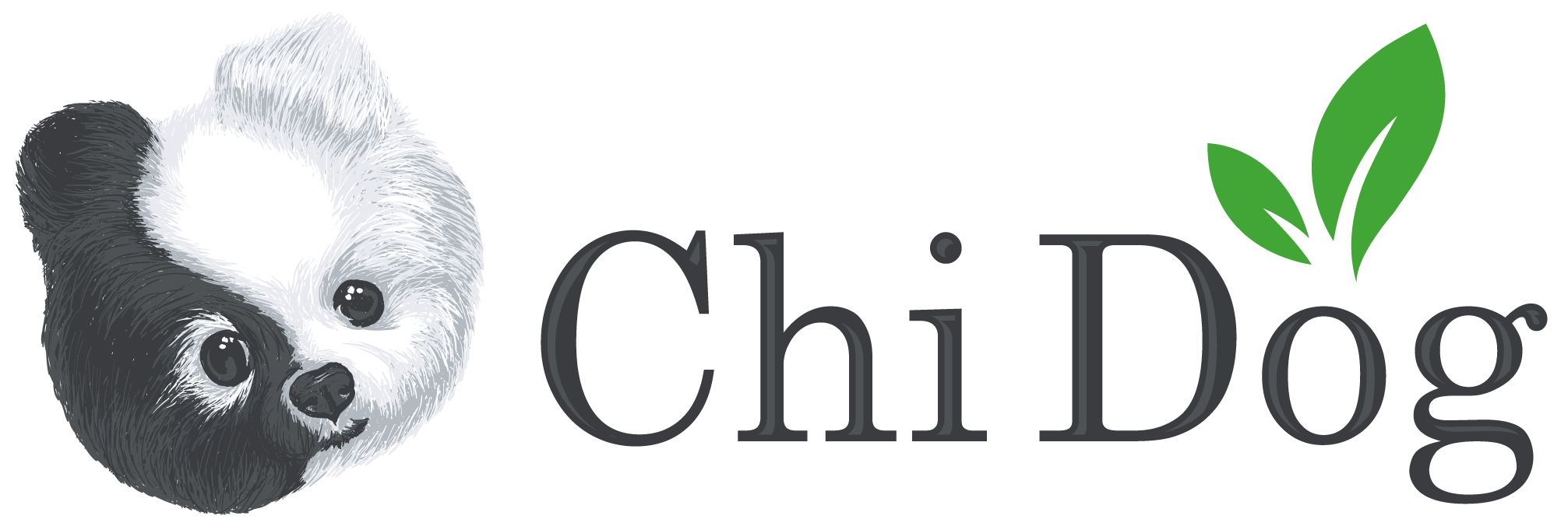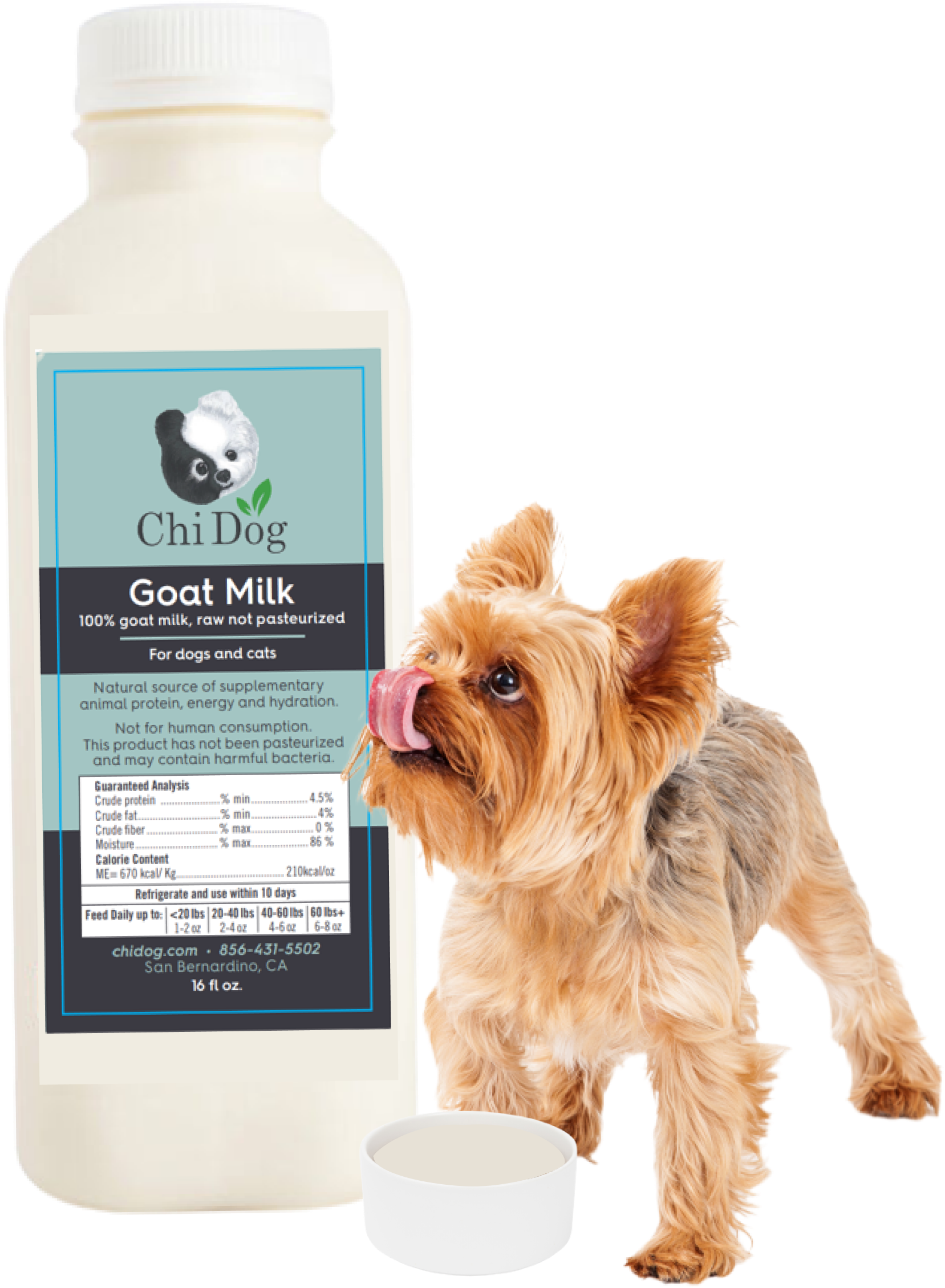
Sensitive Stomach Dog Food: Is A Raw Diet The Best Option?


If you have a dog prone to gastrointestinal issues, you may be searching for sensitive stomach dog food, and this is a smart move. At Chi Dog, we truly believe that food can be medicine, but which option is the best fit for your dog – a raw diet? Fresh dog food? Kibble? Let’s take a look at all of your options to determine what might be the best fit.
Kibble & Canned Food
Let’s start with this option and get it out of the way, because, honestly, this is seldom the best option for any dog. It can be the most affordable and most easily accessible option, but kibble and canned dog food is so heavily processed and filled with additives that it’s not a truly healthy choice. In holistic medicine we understand that kibble and canned food put Heat into the body. This is loosely translated to mean it is pro-inflammatory.
In many cases, the protein sources are the worst cuts of meat and often come from diseased animals. This is perfectly legal, unfortunately, but it’s not good for your dog. Kibble often is loaded with fillers such as corn, wheat or soy, as well. These ingredients are added because they are cheap and provide calories, but they don’t provide real nutritional support and many dogs have difficulty digesting these fillers.
Heavily processed food of dubious quality will never be a good dietary option (for man or beast) and can lead to serious health issues. Instead of kibble, we recommend opting for a diet where each ingredient has been chosen with care and quality in mind. We truly believe that every morsel that enters your dog’s mouth should have a specific nutritional purpose to support their overall health and well-being. This is especially true for any dog that needs a sensitive stomach dog food or for dogs with any health issue.
The Raw Diet
This type of diet has gained a lot of popularity in the last few years, and, to some extent, it’s easy to understand why. This diet includes raw and unprocessed food, including quality human-grade cuts of raw meat, raw eggs and raw veggies and fruits. In some cases, raw dairy products also might be part of this diet.
On the plus side, we love that this diet usually contains wholesome quality ingredients from reputable sources. It is crucial to select raw foods that meet all of your dog’s nutritional needs, but with a proper raw diet, many dogs will enjoy healthier skin and coat, improved dental health and increased energy levels.
However, a raw diet typically is only a good fit for younger dogs or dogs with a strong Spleen Qi, meaning a strong ability to digest. As dogs age or for more sensitive dogs, raw foods can become harder to digest. If your dog already has gastrointestinal issues or begins to develop these issues on a raw diet, it’s best to switch to a diet of healthy, cooked foods, such as fresh dog food. So, to wrap it up, we don’t recommend a raw diet for dogs that need a sensitive stomach dog food.
As a side note, when it comes to adding dairy to your dog’s diet, we highly encourage you to consider raw goat milk instead of any cow-based milk product. Goat milk is gentle on your dog’s tummy and easily digestible and also serves as an excellent natural prebiotic and probiotic.
Fresh Dog Food
Fresh dog food is called “fresh” not because it is raw, but because it contains human grade ingredients, or at least this is true in theory. The ingredients are lightly but thoroughly cooked to make it easier for dogs to digest, but not cooked so heavily that they lose nutritional value. In general, this type of diet tends to be the best match for most dogs, but dog parents do need to read labels and be fully aware of every item in the fresh food and ensure that no preservatives or artificial ingredients have been added.
At Chi Dog, our food fits into the fresh food category, but we are unique in that each variety of our food was designed with Traditional Chinese Veterinary Medicine (TCVM) practices in mind. This is an ancient type of veterinary medicine, backed by thousands of years of history, with a focus on maintaining balance and harmony within your dog’s body.
In general, TCVM subscribes to the concept of Qi – and this is the vital energy that flows through our bodies. When Qi can flow freely, we (and our dogs) enjoy optimum health. When there are imbalances in Qi, this can lead to illness. Diet is a huge factor in keeping Qi flowing freely, but the diet needs to be tailored to the individual’s unique needs.
You may have noticed that our dog food is available in five varieties, and each variety was designed in the context of the Five Elements Theory of TCVM. These elements – wood, fire, earth, metal and water – are each associated with specific organs and systems of the body. Whether your dog is healthy or experiencing a health condition, there is an elemental diet that will best suit their specific nutritional and health needs.
For instance, let’s talk about dog food for a sensitive stomach, which is a very common issue. Our Wood Diet is a gentle option that can help soothe those sensitive tummies. This option contains easily digestible ingredients including chicken, chicken eggs and brown rice, as well as Chinese eggplant and carrots.
We also add a small amount of broccoli, which might sound counterintuitive for dogs with sensitive stomachs. However, broccoli provides dogs with a source of both soluble and insoluble fiber as well as Vitamin C and Vitamin K. Broccoli also promotes immune health and heart health.
The best dog food for dogs with sensitive stomachs should include wholesome, easy-to-digest ingredients. Whether you chose Chi Dog or another brand (or make your own), we recommend doing some research and selecting ingredients that not only soothe the stomach and promote gut health but also ensure that all of your dog’s nutritional needs are met in regards to fat, protein, carbohydrates, vitamins and minerals.
Of course, dogs with sensitive stomachs also may have additional health problems, so you may need to search for low-fat dog food for pancreatitis or perhaps a low-phosphorous dog food or perhaps a kidney-friendly dog food.
We know how confusing and overwhelming this can be, so we invite you to click on the Get Started tab on our homepage and provide us with some details about your dog and their current state of health. This will lead you to one or more of our recommended food varieties. Whether you end up ordering Chi Dog or not, this will provide you with a good idea of what types of foods might be the best option for your sweet dog.
If you have any questions about our sensitive stomach dog food or any of our holistic dog food options, please don’t hesitate to get in touch with a member of our team. You also can peruse our list of Frequently Asked Questions as well as our Diet Plan tab to learn more about our integrative food therapy for dogs.



